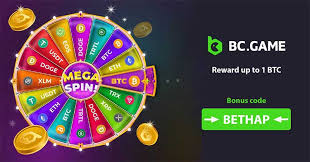
The Evolution of Bc.G in Modern Gaming
In the rapidly evolving ecosystem of digital entertainment, Jogo de login B C stands as a pivotal component that marks significant transformations in gaming dynamics and user engagement. This article delves into the evolution of Bc.G, examining its origins, current trends, challenges, and future prospects within the world of modern gaming.
Understanding Bc.G
To fully appreciate the evolution of Bc.G, it is crucial to understand its foundational elements. Bc.G, which stands for Blockchain Gaming, integrates blockchain technology within the gaming framework to offer decentralized platforms, unique player experiences, and enhanced security. By utilizing blockchain technology, games now possess the ability to enable true digital ownership, player-driven economies, and tamper-proof records of achievements.
The Rise of Bc.G
The ascent of Bc.G can be attributed to several converging factors in the gaming and technology landscapes. The digital era ushered in a new age of gaming, transitioning from console-based platforms to more diverse and accessible digital formats. Simultaneously, the blockchain revolution brought forth the promise of decentralization and transparency in various industries, including gaming.
Initially, the application of blockchain to gaming was exploratory, with developers experimenting with ways to integrate decentralized assets and exchanges. Games like CryptoKitties highlighted the potential, proving that blockchain could support innovative gameplay mechanics and foster a sense of genuine value and ownership over digital assets.

Current Trends in Bc.G
Today, Bc.G has matured beyond its nascent stages to include a variety of genres and gameplay styles. One of the salient trends is the emphasis on player-centric economies, where gamers can not only play but actively engage in the economic ecosystem of the game. This has given rise to “Play-to-Earn” models where players can earn real-world currency or valuable digital assets through their in-game achievements.
Another noteworthy trend is the integration of Non-Fungible Tokens (NFTs) which serve as proof of ownership for unique digital items. These NFTs have transformed in-game collectibles into assets with real-world marketability, creating a fusion of entertainment and investment. Additionally, decentralized autonomous organizations (DAOs) are becoming increasingly prevalent within Bc.G, offering players governance rights and a stake in the decision-making processes of game development and community events.
Challenges Facing Bc.G
Despite its promising prospects, Bc.G faces a myriad of challenges that must be addressed to ensure sustainable growth and widespread adoption. One of the primary concerns is scalability. With blockchain’s current limitations in processing transactions quickly and efficiently, many Bc.G platforms struggle to offer seamless user experiences akin to traditional gaming environments.
Security is another critical area of concern. While blockchain is inherently designed to be secure, vulnerabilities in smart contracts or external hacks can lead to significant losses. Ensuring robust security measures and auditing processes are essential to protect user assets and maintain trustworthiness.

Furthermore, regulatory challenges loom large, as governments and financial institutions seek to establish guidelines and laws around digital currencies and blockchain applications. The evolving legal landscape demands that Bc.G developers remain vigilant in adapting to new regulations to avoid potential legal hurdles.
The Future Prospects of Bc.G
Looking ahead, the future of Bc.G appears bright with innovation and adaptation being key driving forces. As blockchain technology continues to evolve, we can anticipate enhancements in scalability and transaction speeds, which will enable richer and more dynamic gaming experiences. Interoperability between different blockchain ecosystems may also provide players with newfound flexibility and freedom.
Partnerships between traditional gaming companies and blockchain pioneers are likely to yield hybrid models that marry classic gaming elements with the benefits of decentralization. As mainstream adoption grows, the awareness and understanding of Bc.G will increase, leading to larger, more engaged gaming communities.
Moreover, advancements in virtual and augmented reality technologies may seamlessly integrate with Bc.G, offering immersive experiences that blur the line between the virtual and physical worlds. The potential for cross-industry collaboration in entertainment, art, and education sectors could further broaden the impact of Bc.G in everyday life.
Conclusion
In conclusion, Bc.G represents a transformative paradigm in the gaming industry, offering unprecedented opportunities for innovation, player engagement, and economic empowerment. While it does face challenges, the ongoing advancements in technology, coupled with a proactive approach towards regulation and security, are poised to overcome these hurdles. Ultimately, Bc.G holds the promise of redefining the gaming landscape, making it an exciting domain to watch as it continues to evolve.
